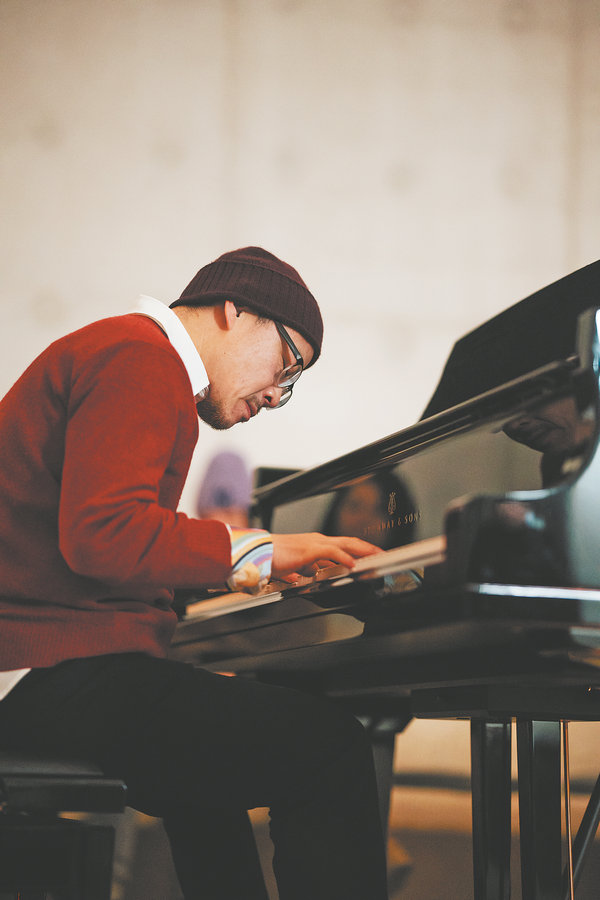

The piano stood in the center of the Aranya North Coast Chapel, a popular scenic spot in the Aranya resort in Qinhuangdao, the coastal city in Hebei province.
It was a cold winter night that Jan 13, and as people gathered inside, jazz pianist Xia Jia prepared to perform.
"It was an unforgettable evening. The audience included parents and children, as well as elderly people. They sat in circles, very close to me. Though I was performing alone, we shared the night in the small chapel as music flowed around us," says Xia.
A few days later, he listened to the recording of the concert and was surprised. He hadn't expected that the sound would be so unique. A friend also listening to the recording commented that "the sounds breathed".
"Maybe it was the building, which has a high-pitched roof and is an intimate space. It made me want to turn the live recording into an album, to make the performance permanent," says Xia.
To support the album's release, the pianist played a series of concerts, including at Beijing's Tsinghua University on March 30 and at Harbin's Old Synagogue Concert Hall on April 13.
The album opens with an improvisation, which Xia says "invites people in" with music he felt was suited to that particular moment in the seashore chapel.
He also played songs like Lament, which he wrote to commemorate legendary jazz player Kenny Kirkland (1955-1998), one of his favorite musicians, and Echo, which he composed while studying at the Eastman School of Music in New York, and which he dedicated to the Eastman Jazz Ensemble and his teacher, Harold Danko.
New Autumn, composed by Danko, and Warm Winter, a piece by Xia, rounded off that night in Aranya.
Xia says that he wrote Warm Winter a few days before the performance at the seashore chapel, shortly after visiting his mother in Beijing.
"Though the winter was very cold, I felt warm. And the piece came out naturally," he says.
"His improvisations are impressive, reeling off piano improvisations that are soulful, harmonically forward and marked by painterly restraint. In my note book, I scribble a snap judgment: 'any scene would be lucky to have him'," New York Times jazz critic Nate Chinen once wrote about Xia.
"Xia Jia's playing was in a way restrained but nonetheless sophisticated. There was clearly thoughtfulness in his playing and the way he built his improvisations," says Eugene Marlow, a jazz musician and author, who produced a feature-length documentary in 2022, based on his acclaimed 2018 book Jazz in China, which traces the genre's history in China since the 1920s.